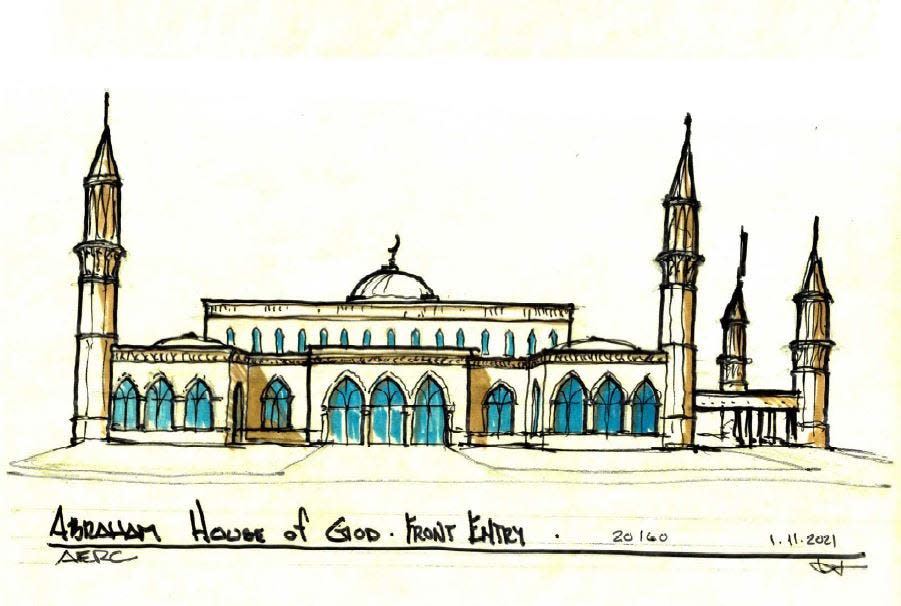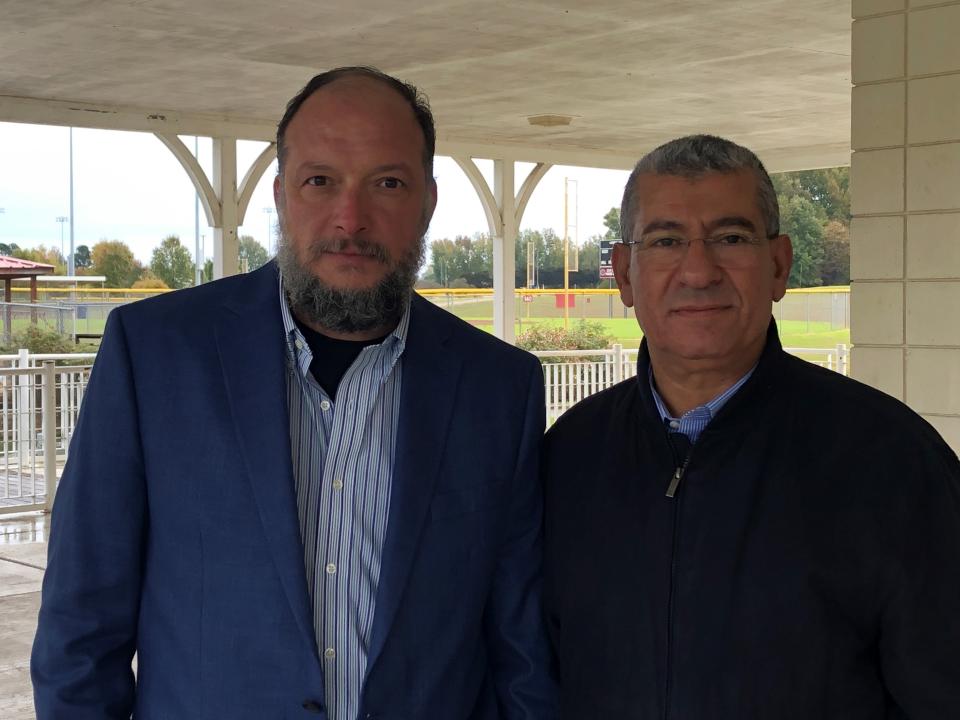Anti-Muslim prejudice prompted Mississippi city to block mosque site plan, lawsuit says
MEMPHIS — The American Civil Liberties Union is suing Horn Lake, Mississippi, in federal court, alleging the city and its board of aldermen discriminated against two Muslim men on the basis of religion in denying approval of a mosque site plan.
The lawsuit argues the government officials violated the First Amendment rights of the men who want to develop the mosque, Maher Abuirshaid and Riyadh Elkhayyat. It also argues that city officials violated a federal law that gives heightened legal protections in land-use decisions to people groups that face discrimination.
The lawsuit asks a judge to nullify the Horn Lake officials’ decisions and to order the city to grant the land-use request for the mosque.
“A mosque is to Muslims what a church is to Christians or a synagogue is to Jewish people," said Joshua Tom, legal director at the ACLU of Mississippi. "Without a mosque, Muslims like Mr. Elkhayyat and Mr. Abuirshaid and their families cannot practice their religion as they would like and they cannot practice it fully.”
Horn Lake is in DeSoto County, which is just south of Memphis, Tennessee. Abuirshaid and Elkhayyat are DeSoto County residents and want to develop a mosque so their families and other Muslim families in DeSoto County will have a place to worship without having to drive a half-hour or more to Memphis.
“A local mosque is critical for my family and the Muslim community in DeSoto County to practice our religion,” Abuirshaid said in a news release.
The suit is being filed by the ACLU, the ACLU of Mississippi and New York City-based Simpson Thacher & Bartlett LLP.
In April, Horn Lake's board of aldermen voted 5-1 to uphold the city’s planning commission’s decision to deny approval of the site plan. Aldermen cited insufficient water mains for fire sprinklers, the fear that the building would break the noise ordinance and that it would be a traffic hazard as reasons for opposing the application.
The denial was made even though the mosque site plan met or exceeded all requirements to be built and although the piece of property was zoned for a house of worship.
USA TODAY Opinion: I never discriminated against anyone. Still, I was fired: Former Black fire chief

“The Board’s unsubstantiated reasons for denial of the site plan were pretextual," reads the lawsuit. "The Board’s decision was based on an anti-Muslim animus and discrimination.”
Latimer, the mayor, did not immediately respond to a request for comment.
Violations of the law, the Religious Land Use and Institutionalized Persons Act (known as RLUIPA) have resulted in lawsuits brought by the Department of Justice and sometimes settlements of millions of dollars.
The law states: “No government shall impose or implement a land use regulation in a manner that imposes a substantial burden on the religious exercise of a person, including a religious assembly or institution,” unless the government can demonstrate that it has a “compelling governmental interest” in the regulation and there is no less-burdensome method of meeting that interest.
“Each of those four prongs were violated by the city of Horn Lake in denying the permit to build the mosque," said Jonathan Youngwood, an attorney with Simpson Thacher & Bartlett LLP. "What should have been an uncomplicated approval of the site plan for Abraham House of God foundered with historic anti-Muslim bias."
In May, several experts on the law told The Commercial Appeal, part of the USA TODAY Network, that Horn Lake's rejection of the mosque was likely a violation of that federal law.
More: ACLU calls for reforms after police handcuffed, arrested a disabled 10-year-old Black girl
“Here, denying a permit to build a mosque because of explicit and thinly veiled anti-Muslim bias is a clear violation of RLUIPA," Tom said. "Also treating a mosque differently from the tens of other churches in Horn Lake and over 100 of other churches in DeSoto County is also a violation of RLUIPA, because it treats a mosque differently than churches.”
It also violates the First Amendment since "they clearly denied this permit because the permit is to build a mosque," Tom said.
In an interview with The Commercial Appeal in May, former alderman John Jones Jr. said: “I don’t care what they say, their religion says they can lie or do anything to the Jews or gentiles because we’re not Muslims.”
And in a meeting, he said, "If you let them build it, they will come. I think we need to stop it before it gets here.”

According to the lawsuit, one resident wrote in a Facebook group in which an alderman was a member, “This is wrong on so many levels. They are supposed to assimilate to our country, not us to theirs.” Another resident responded: “They will never assimilate. Their religion is to take over and kill the infidel. That’s us.”
And, in a Board of Aldermen meeting, one speaker said, “they are not subject to our laws, they’re subject to their laws.”
Not having a mosque in the area means the plaintiffs and their families are not able to practice their religion fully, unable to teach their children about Islam, unable to attend Friday prayers and unable to fully participate in observances of Islamic holidays, Tom said.
“Particularly in Mississippi, where Islam is not as prevalent as in other parts of the country and certainly not as prevalent as Christianity, a mosque is the equivalent of a church for a Christian and equally important for the practice of Islam," Tom said.
Elkhayyat, who has been a resident of DeSoto County, Mississippi, for over 20 years, has raised his six children in the county and wants to build it for them.
Related: Is banning critical race theory in schools unconstitutional? Lawsuit in Oklahoma seeks to prove it.

“I think it’s a duty for us to try to establish that mosque because our kids need a place to have their prayers, practice their faith," he said. "I am disappointed at the rejection we got from the city and I just wish that this project could get approved so we could go on with building the mosque.”
Having to travel to Tennessee to worship makes it difficult to fully practice their faith, said Abuirshaid, who has lived in Mississippi for over 15 years and has raised his three children there. Sometimes they cannot attend Friday prayers and they are unable to fully practice Islamic holy days, including Ramadan.
"A local mosque is important for my children’s education too, and sense of belonging. In addition to teaching them about their faith and how to read Arabic and Quran, having a mosque nearby is important to keeping children on the correct path and teaching them to be a better Muslim, better citizens and better people," Aburshaid said.
Contributing: The Associated Press
Follow Katherine Burgess on Twitter @kathsburgess.
This article originally appeared on Memphis Commercial Appeal: ACLU files lawsuit against Mississippi city over blocking mosque site

